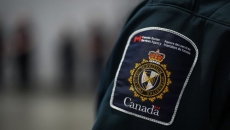A tribunal that is part of the military grievance process has found that the Canadian Armed Forces COVID-19 vaccine policy violated its members' Charter rights.
The Military Grievances External Review Committee reviews grievances that are referred to it by the chief of defence staff, and provides the chief with non-binding findings and recommendations.
In all, 157 grievances have been filed with the independent tribunal over the military's vaccination policy, which took effect in the fall of 2021 and remained in place for nearly a year before being updated to apply more narrowly.
Because dozens of similar grievances are being considered at the same time, the committee took the step of releasing three annexes in mid-July that laid out its analysis in order to streamline future cases.
The vaccine policy required Canadian Armed Forces members to be vaccinated against COVID-19 or face release.
By the time the requirement ended last October, 299 people had been released and another 108 left on their own.
The initial vaccine mandate in October 2021 came after a similar policy was put in place for the core public administration, including the RCMP and employees of the Department of National Defence.
The chief of the defence staff's first directive stated that 91 per cent of Armed Forces members had already chosen to get the vaccine, and it gave members until November 2021 to declare whether they were fully vaccinated or if they were unwilling or unable to get the shot.
Those who could not get vaccinated were to be accommodated under human-rights legislation, but those who chose not to were warned they could lose promotion, training and deployment opportunities or be released altogether.
Anyone who did not disclose their status or who refused a vaccine could face remedial administrative measures, or they could choose to be released or transferred to the supplemental reserve.
Another directive from December 2021 stated that unvaccinated members could be released under a provision stating that they were unsuitable for service.
Last October, that was updated to say that vaccines are not required for all those serving in uniform, but are instead based on the roles and responsibilities of individual service members.
In an interview with The Canadian Press at the time, Gen. Wayne Eyre, chief of the defence staff, said service members are expected to follow legal orders — and that a repeated refusal by some troops to get their shots "raises questions about your suitability to serve in uniform."
"It's dangerous in the military to have legal orders disobeyed," he said. "It's a very slippery slope."
The external review committee made findings in three grievance cases at the end of May.
The committee concluded that the policy infringed the rights protected under Section 7 of the Charter, which guarantees life, liberty and security of the person. It found the limitations on these rights were not in accordance with the principles of fundamental justice.
The tribunal also determined that the limitations were not justified under Section 1 of the Charter, which states that rights and freedoms are subject to reasonable limits.
Committee member Nina Frid, who wrote the analysis, found that while there was justification for a vaccine mandate because "the science shows that the COVID-19 vaccines are effective at reducing the likelihood of becoming seriously ill or dying from this disease," the policy arbitrarily distinguished between those who could not get the vaccine and those who chose not to get jabbed.
Frid also wrote that the policy was "overly broad" and its implementation was "disproportionate."
"The characterization that members who are 'unwilling' to get vaccinated are displaying misconduct is in contradiction with the CAF's own pre-existing policies and statements that also guarantee their members' choice towards medical treatment," she wrote.
The committee is recommending that all administrative actions taken against members who refused to get a vaccine be rescinded, and in one case, it is calling for a griever to be allowed to re-enrol in the military.
Eyre will make final decisions in the cases, and as defence chief he does not have to follow the recommendations. He has previously said he would consider requests to re-enrol on a case-by-case basis.
In a written statement, the Defence Department said it is important to note that the process is not finished until Eyre's review is done.
"The CAF forms its decisions on vaccination by considering the most up-to-date medical evidence and advice, the current federal posture and the need to be operationally ready in terms of both force health and ability to act in an environment where any vaccine-preventable illness is a hazard to individuals and the mission," said spokesperson Jessica Lamirande.
She pointed out that more than 96 per cent of Armed Forces members are vaccinated against COVID-19.
"CAF members routinely get vaccinated as required for a number of diseases — from cholera to yellow fever — before their deployment," the statement said.
Retired Lt.-Col. Rory Fowler, a lawyer who specializes in military cases, said the public release of the committee's analysis demands a response from Eyre, though he does not expect a decision to come soon. "What it does is it puts in the public domain their views and it forces the issue."
The way the military has gone about releasing members — characterizing their choice not to get vaccinated as a disciplinary matter, rather than pursuing charges — is cowardly, Fowler said.
He added he does not expect Eyre's office will accept the committee's recommendations, and that eventually these grievances will result in judicial reviews.
"They're going to reject, at least in part, elements of the findings and recommendations that they find unpalatable, and there will then be litigation arising from the eventual determinations."






